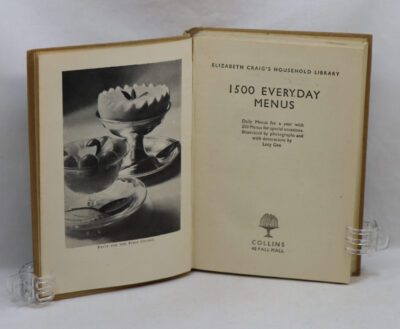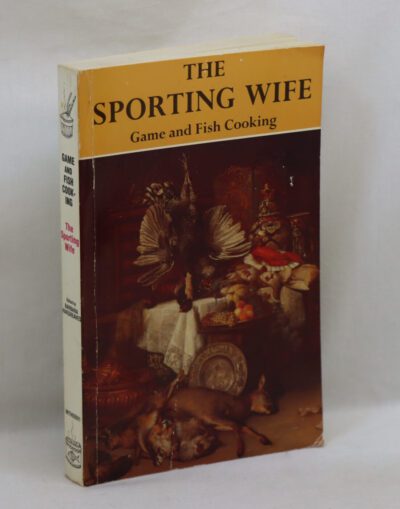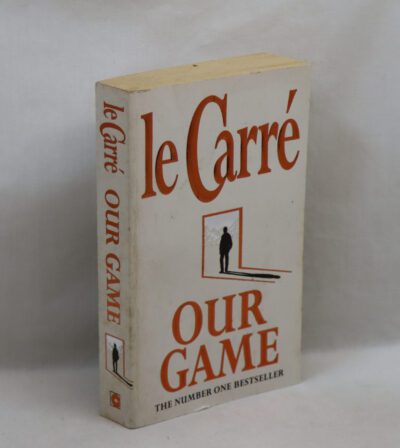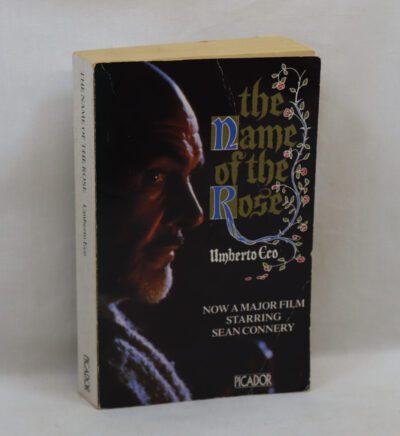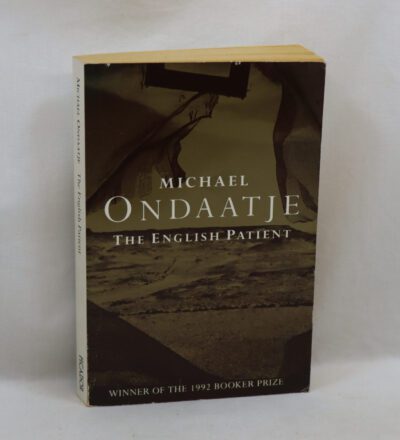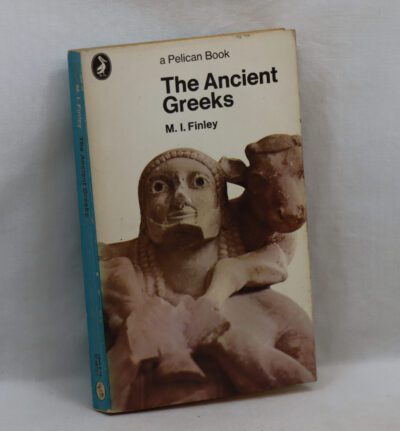Lempriere's Classical Dictionary.
By J Lempriere
Printed: Circa 1980
Publisher: George Routledge & Sons. London
| Dimensions | 16 × 21 × 4 cm |
|---|---|
| Language |
Language: English
Size (cminches): 16 x 21 x 4
Condition: Fair (See explanation of ratings)
Item information
Description
Green cloth binding with gilt title on the spine and front board.
-
- We provide an in-depth photographic presentation of this item to stimulate your feeling and touch. More traditional book descriptions are immediately available
- Note: This book carries a £5.00 discount to those that subscribe to the F.B.A. mailing list
A bastardized facsimile published in the 1980s, remains in a good workable condition.
The Bibliotheca Classica (Reading, November, 1788), or Classical Dictionary containing a full Account of all the Proper Names mentioned in Ancient Authors, is the best-known work of John Lemprière, an English classical scholar. Edited by various later scholars, the dictionary long remained a readable if not absolutely trustworthy reference book in mythology and classical history. Lemprière wished “to give the most accurate and satisfactory account of all the proper names which occur in reading the Classics, and by a judicious collection of anecdotes and historical facts to draw a picture of ancient times, not less instructive than entertaining.”
The dictionary has been a handbook for teachers, journalists, dramatists and poets for almost 200 years and John Keats is said to have known the book almost by heart.”Far from being just an ordinary dictionary, however, Lemprière’s encyclopedic work is full of incidental details and stories which bring the mythical past to life.” It is also assumed that the great scholar Richard Valpy helped Lemprière with the dictionary.
Many ships of the Royal Navy were named from Greek and Roman mythology during the Napoleonic Wars. Lord Sandwich, the First Lord of the Admiralty, had a copy of this book on his desk and simply plucked a name from within. For example, HMS Bellerophon, HMS Charon, HMS Orion, HMS Leander, HMS Minotaur, HMS Pegasus, HMS Phaeton, HMS Theseus, HMS Venus.
In 1794 a Latin-language Bibliotheca Classica was published anonymously in Deventer in Holland. The introduction criticised Lemprière’s work, but the book itself largely consisted of a translation of Lemprière, even to the extent of incorporating errors that had been corrected in the 1792 edition.
Editions
- Bibliotheca Classica or Classical Dictionary, Reading, 1788.
- Bibliotheca Classica or a Classical Dictionary…..The Second Edition greatly enlarged, London, for T. Cadell, 1792.
- Bibliotheca Classica or Classical Dictionary, 3rd Edition, London, for T Cadell et al, 1797 (Later editions: 1815, 1818, 1828 – 15th edition, printed by A[ndrew] & R[obert] Spottiswoode, New-Street-Square, 1832, 1838, 1843, 1888).
- Bibliotheca Classica or Classical Dictionary, New York, 1833.
- Bibliotheca Classica or Classical Dictionary, W.E. Dean, New York, 1836. Revised and Corrected, and Divided, under Separate Heads, into Three Parts: Part I. Geography, Topography, etc. Part II. History, Antiquities, etc. Part III. Mythology by Lorenzo L. Da Ponte and John D. Ogilby. 10th American Edition. Greatly Enlarged in the Historical Department, by Lorenzo L. Da Ponte.
- Bibliotheca Classica or Classical Dictionary, 10th American Edition, W.E. Dean, New York, 1839. Greatly Enlarged in the Historical Department by Lorenzo L. Da Ponte and John D. Ogilby.
- Lemprière’s Classical Dictionary, (Facsimile) London: Bracken Books, 1984.
- Lemprière’s Classical Dictionary, Senate Books, 1994.
John Lemprière (c. 1765, Jersey – 1 February 1824, London) was an English classical scholar, lexicographer, theologian, teacher and headmaster. John Lemprière was the son of Charles Lemprière (died 1801), of Mont au Prêtre, Jersey. He received his early education at Winchester College, where his father sent him in 1779, and from 1785 at Pembroke College, Oxford, probably on the advice of Richard Valpy, graduating BA in 1790, MA in 1792, BD in 1801, and DD in 1803.
Lemprière may have been influenced by another Pembroke man, the lexicographer Dr Samuel Johnson, whose famous A Dictionary of the English Language had appeared in 1755. A little over thirty years later, around 1786, Lemprière started work on his own Classical dictionary.
In 1787, he was invited by Valpy to be assistant headmaster at Reading Grammar School, and in 1789, to the great pride of his father, he preached in St Helier, Jersey. He achieved renown for his Bibliotheca Classica or Classical Dictionary containing a full Account of all the Proper Names mentioned in Ancient Authors (Reading, November 1788), which, edited by various later scholars, long remained a readable if not absolutely trustworthy reference book in mythology and classical history. Lemprière wished “to give the most accurate and satisfactory account of all the proper names which occur in reading the Classics, and by a judicious collection of anecdotes and historical facts to draw a picture of ancient times, not less instructive than entertaining.” (Lemprière, Preface, 1788). It has been a handbook for teachers, journalists, dramatists and poets for almost two hundred years and John Keats is said to have known the book almost by heart. “Far from being just an ordinary dictionary, however, Lemprière’s encyclopedic work is full of incidental details and stories which bring the mythical past to life.” It is assumed that the great scholar Valpy helped Lemprière with the dictionary.
Lemprière held a schoolmaster’s post at Bolton Grammar School in 1791 and was a curate at Radley, Oxfordshire.
From 6 August 1792 until his resignation in midsummer 1809, he was headmaster of Abingdon Grammar School, and in 1800 was also appointed as vicar of that parish, serving until 1811. While occupying these two posts, he published a Universal Biography of Eminent Persons in all Ages and Countries (London, 1808).
His time at Abingdon School has been recorded as being a period of negligence on his part, which resulted in a decline of the School during the period. Numbers at the School began to decline in 1795 and the number of scholars (Charity boys) never exceeded two and there were only some six or so boarders. He failed to make use of the Bennett’s endowment as a route towards Pembroke College and excluded the town boys from mixing with his borders out of hours. He also failed to repair any of the School buildings. On 20 July 1798, the Borough records show that George Knapp (the Mayor of Abingdon-on-Thames and a former Abingdon School pupil) headed a committee to confer with Lemprière regarding the Roysse’s Ordinances. Lemprière has been the subject of complaints stating he had been negligent in his duties at the School and at St Nicholas’ Church. In 1799 he was deprived of his benefice and was persuaded to resign from the school in 1809.
In 1809 he succeeded to the headmastership of Exeter Free Grammar School and held this post until 1819. On retiring from this school, following a disagreement with the trustees, he received the living of Meeth in Devon, which, together with that of Newton St Petrock, he held until his death from a stroke in the Strand, London. He is buried in Meeth, where his grave can be found.
Two of his sons were also rectors of Meeth: Francis Drocus Lemprière (born 1794) and Everard Lemprière (born 1800). His daughter Caroline, who died at the age of twenty-seven, was the first wife of John Bathurst Deane.
Condition notes
Want to know more about this item?

Related products
Share this Page with a friend




